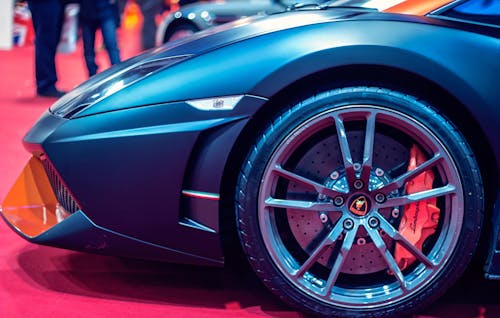Luxury and Performance: Why Sports Cars Are the Ultimate Driving Machines
Sports cars epitomize the perfect blend of luxury and performance, attracting enthusiasts around the globe. Their design reflects sophistication, while their engineering pushes the boundaries of speed and handling. In this article, we examine how sports cars became symbols of status and excitement, delving into the engineering advancements that elevate them beyond mere vehicles. The allure of owning a high-performance sports car continues to drive demand, making it a fascinating study of consumer passion and technological achievement.
The Essence of Sports Cars: Luxury Meets Performance
Sports cars are not just about speed; they also symbolize luxury and exclusivity. Their craftsmanship often includes premium materials, such as leather interiors and carbon fiber accents, providing a touch of refined elegance that is hard to overlook. The attention to detail in design and engineering makes each sports car unique, reinforcing the notion that these vehicles are a work of art. The performance aspects of sports cars complement their upscale features, offering a thrilling driving experience while wrapped in luxury. Consumers are drawn to the idea of driving a vehicle that represents a successful lifestyle, making sports cars aspirational objects within society. Thus, the intersection of luxury and performance plays a crucial role in the automotive market, appealing to affluent buyers in search of premium experiences.
Engineering Marvels: The Technology Behind Sports Cars
The technology in sports cars sets them apart from regular vehicles. High-performance engines, cutting-edge suspension systems, and innovative aerodynamics contribute to their exceptional capabilities on the road. Manufacturers utilize advanced materials to enhance speed and fuel efficiency, further emphasizing the blend of performance and luxury. For instance, many sports cars now feature turbocharged engines that produce power with remarkable efficiency. Plus, the development of traction and stability control systems ensures that drivers can maximize their vehicles' potential in varying conditions. As sports cars evolve, integrating artificial intelligence and machine learning into their design processes becomes a reality. Such advancements herald a thrilling future for automotive engineering enthusiasts.
Sports Cars in Popular Culture
The prevalence of sports cars in popular culture significantly influences public perception and desirability. Movies, music videos, and television shows often feature sports cars as symbols of wealth, power, and adventure. This recurring imagery reinforces the perception that driving a sports car equates to an elevated social status. High-profile celebrity endorsements further boost their allure, as fans aspire to replicate their idols' lifestyles. Moreover, social media plays an integral role in shaping the narrative around sports cars, with influencers showcasing their experiences behind the wheel. This interplay between sports cars and popular culture creates a potent mixture of aspiration and excitement, fueling demand for these luxury performance vehicles.
Consumer Trends: The Growing Demand for Sports Cars
Market trends indicate that the demand for sports cars remains robust, even as consumer preferences evolve. Younger buyers are increasingly drawn to compact sports cars that offer a blend of performance and everyday usability. The surge in interest surrounding electric sports cars shows the industry's responsiveness to changing values. As consumers become more environmentally conscious, manufacturers are compelled to innovate and meet these expectations. The shift towards hybrid powertrains exemplifies this trend, allowing enthusiasts to enjoy the thrill of driving without the environmental guilt traditionally associated with gasoline engines. This ongoing evolution highlights the sports car segment's adaptability to market shifts and its ability to maintain relevance in a dynamic landscape.
The Community of Sports Car Enthusiasts
Owning a sports car often leads to a shared sense of community among enthusiasts. Car clubs, racing events, and online forums provide spaces for passionate individuals to connect, share knowledge, and celebrate their love for these remarkable machines. This culture fosters camaraderie and facilitates information exchange about modifications, maintenance, and driving experiences. Furthermore, many enthusiasts engage in track days, where they can push their sports cars to the limit in a controlled environment. These gatherings create an exhilarating atmosphere that reinforces the joy of driving a sports car. Ultimately, the community aspect plays a significant role in sustaining the passion for sports cars beyond mere ownership.
Conclusion: The Enduring Legacy of Sports Cars
The legacy of sports cars is undeniable, marking them as symbols of luxury, performance, and engineering excellence. While trends may shift, the allure of sports cars as driving machines persistently captivates consumers. Each new model release continues to build upon the lineage of automotive innovation and design. As technology advances, so too does the potential for new driving experiences that entice future generations. The combination of passion, performance, and community ensures that sports cars will remain an essential part of the automotive landscape for years to come.
